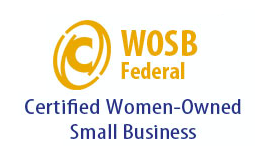Shakespeare's Hamlet denounces his mother's swift remarriage by saying, "Frailty, thy name is woman." One could suggest that researchers have been doing the same for the leadership gender gap.
As I read the key findings from LeanIn/McKinsey's latest research I notice a pattern with how they reported on gender issues. Take a look at these excerpts from the "Women face an uneven playing field" section and see if you can catch it:

Do you see the pattern? The dynamics that create the uneven playing field and hold women back are presented as if women are the problem, women cause the problem or women are the passive recipients of problems with no known causes.
- Women experience an uneven playing field
- Women are negotiating as often as men, but face pushback when they do
- Women get less access to senior leaders
- Women ask for feedback as often as men - but are less likely to receive it
- Women are less interested in becoming top executives - and see the pros and cons of senior leadership differently (this is a disputable claim depending on the level of women you survey)
In part because of how the leadership gender gap causes have been reported and until recently, most organizations have tackled the leadership gender gap by working to "fix" the women .
"What's in a name?"
Shakespeare proclaims that a rose by any other name would smell as sweet, but perhaps this doesn't apply to the causes of the leadership gender gap. What if instead of being attributed to women, the causes of the gap were reported like this:
- Management actions create an uneven playing field for women
- Managers are less open to women who negotiate than they are to men
- Senior leaders are less likely to informally meet with, mentor or sponsor women and are more likely to give men development opportunities and guidance that lead to senior roles
- Managers give women less feedback overall and less effective feedback (focus on "style" rather than substance) than they give men
- Many managers believe that women don't aspire to senior positions, but research indicates that women in senior management positions are as likely to aspire to advancement as men
Having caught onto this pattern, I looked through a number of recent research reports and found many fall into the same pattern
"Women continue to be underrepresented in the workforce at all career levels"
Which could be more accurately stated as "managers actions continue to advantage men causing women to be underrepresented in the workforce at all career levels."
Some cite "organizations" as if it were an entity not a collection of managers' actions
"Organizations are failing to build future female talent pipelines"
More accurately reported as, "managers and executives are failing to build future female talent pipelines and HR systems contribute to this problem."
I admit, at Leading Women we have fallen into these patterns ourselves, but our gender dynamics work with executive teams and others makes the relationship between the actions of managers and the unlevel playing field crystal clear. The advantage in doing this is that action-oriented leaders discover that they can do something to close the gap!
If your efforts to close the leadership gender gap would benefit from the support of high-impact and action-oriented education for managers, contact us to discuss Leading Women's unique approach to closing the leadership gender gap.
Lead ON!







